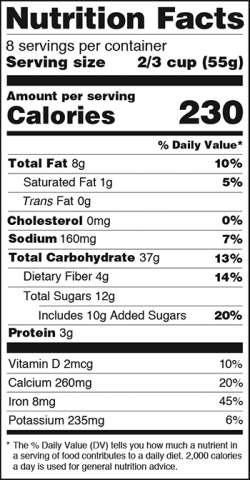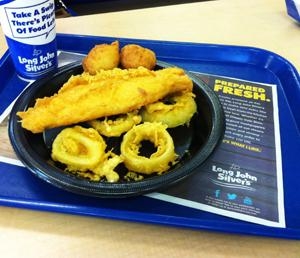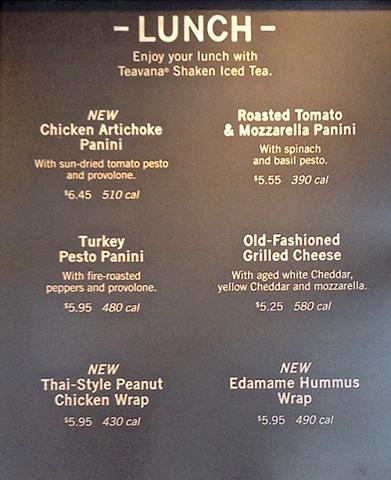
Our victories
Founded in 1971, the Center for Science in the Public Interest is one of the world's oldest independent, science-based consumer advocacy organizations, with an impressive record of accomplishments and a clear and ambitious agenda for improving the food system to support healthy eating.

2024
For more than 50 years, CSPI has worked to improve the quality and safety of food, remove harmful food additives from shelves and lunchrooms, provide access to nutritious meals, assure informative and accurate food labeling, and advance public health while debunking misleading (and dangerous) food and supplement marketing. We’re working to make diagnostic tests more reliable, rein in the marketing of unhealthy foods and beverages (especially to children), and improve oversight of dietary supplements and nutrition misinformation. Because we take no donations from government or industry, we are able to do this work only because of supporters like you. Here’s what we accomplished together in 2024.

2023
The list of accomplishments below is thanks to CSPI members! Since CSPI takes no corporate donations and Nutrition Action accepts no advertising, we depend on members like you. Help lengthen our list of 2023 victories—which includes wins in food safety, healthy retail, food and beverage labeling, child nutrition, oversight of laboratory-developed tests, and eliminating harmful food additives from the US food supply—including by donating today.

2022
CSPI celebrates the White House’s historic Conference on Hunger, Nutrition, and Health, where several of our highest priorities are featured in the National Strategy (see below). CSPI was awarded $15 million from philanthropist MacKenzie Scott—the largest such gift in the nonprofit’s 50-year history as America’s food and health watchdog. Throughout the year, CSPI celebrates wins in food labeling commitments from the Alcohol and Tobacco Tax and Trade Bureau on mandatory alcohol labeling following a CSPI lawsuit, and the White House’s endorsement of front-of-package labeling. A CSPI and Johns Hopkins study finds that contracts incentivizing increased sales of unhealthy beverages are nearly ubiquitous at large, public U.S. universities. CSPI brings back its popular Xtreme Eating Awards in Nutrition Action and rates titanium dioxide as a food additive that consumers should avoid. Following a 2021 petition and more than a decade of CSPI advocacy, CSPI secures a commitment from USDA to ban the riskiest Salmonella contamination from raw poultry. While too many restaurant chains are found to still be offering sugary drinks with kids’ meals, CSPI helps pass legislation on healthy beverage default for restaurant kids’ meals in Montgomery County, Maryland—the second county in the country to do so. Colorado voters approve a ballot measure ensuring that all children in the state receive free and healthy school meals after a state-wide coalition effort that CSPI Action Fund supported.

2022 HIGHLIGHT
White House endorses front-of-package labeling and healthy school meals for all
In September 2022, the Biden administration hosted a once-in-a-generation White House Conference on Hunger, Nutrition, and Health and released its National Strategy. CSPI was thrilled to see several of our highest priorities, encapsulated in a July 2022 letter to President Biden, included: front-of-package labeling, sodium reduction targets in packaged and restaurant foods, commitments to expand healthy school meals for all.

2021
CSPI celebrates its 50th anniversary as America’s food and health watchdog! Throughout the year, CSPI president Dr. Peter Lurie repeatedly debunks claims that ivermectin prevents or treats COVID-19, in outlets like the Washington Post, Bloomberg, and NPR. In 2021, CSPI helps win passage of the Sweet Truth Act, which requires warning symbols on menus for prepackaged foods and drinks that have more than a day’s worth of added sugars. As part of its investigation into supply chain disruptions, the Federal Trade Commission includes several CSPI-inspired document requests of grocers related to category captains and other trade promotion practices. CSPI launches a campaign to Keep Soda in the Soda Aisle. CSPI and others score a legal victory scuttling a Trump-era scheme to sunset thousands of health and food safety regulations. Prompted by a CSPI petition and lawsuit, the Food and Drug Administration finalizes voluntary sodium reduction targets for the food industry. Illinois makes healthy drinks the default with kids’ meals. After CSPI calls for an investigation, the FDA brings enforcement proceedings against Joseph Mercola for claiming his supplements may prevent or treat COVID-19. CSPI celebrates passage of bill adding sesame to list of labeled allergens. CSPI board chair Dr. David Kessler is tapped to be chief science officer of the U.S. response to the COVID-19 pandemic by then-President-elect Joe Biden.

2020
CSPI wins a major victory in federal court against the Trump USDA on school meals (below). CSPI also advocates for, and wins, universal school meals for children during the pandemic. In coalition with local partners, we help Prince George’s County, Maryland pass a groundbreaking law improving kids’ meals at restaurants, and Berkeley, Calif., to pass a healthy checkout ordinance.
During the Covid-19 pandemic, CSPI creates an evidence hub for research on treatments, and tests, and later, a vaccine hub comparing the major Covid vaccines using the latest science. Our policy experts work to stop the spread of disease by advocating for worker safety in meatpacking plants. We lobby Congress to increase access to, and benefits from, the Supplemental Nutrition Assistance Program. At CSPI's urging, regulators crack down on supplement manufacturers and others who would try to exploit the pandemic for profit.

2020 Highlight
Victory: Federal court strikes down Trump Administration school nutrition rollbacks
In April 2019, CSPI and Healthy School Food Maryland, represented by Democracy Forward, brought a case in federal court in Maryland alleging that USDA unlawfully weakened nutrition standards in school meals without due notice and justification. In April 2020, a federal court struck down the rule, which would have rolled back nutrition standards on whole grains and sodium in school lunch and breakfast.

2019
After more than 100 years, trade association the Salt Institute quietly dissolves in March. In April, CSPI, along with Democracy Forward and Healthy School Food Maryland, sues the US Department of Agriculture over a rule that substantially weakens nutrition standards concerning the amount of whole grains and sodium served in school meals (in April 2020, the rule was struck down by a federal judge). CVS settles a 2016 class action lawsuit brought by CSPI and agrees to pay refunds to purchasers of Algal-900 DHA supplements, which the company marketed as memory aids.
CSPI asks the Federal Trade Commission to take enforcement action against the Sebastian Gorka-endorsed supplement brand Relief Factor, whose dietary supplements claim to treat; the company soon replaces the ad, removing the reference to "Dr." Gorka. A CSPI report finds that 61 percent of top restaurants have sugary beverages on kids' menus, down from 93 percent in 2008 when CSPI began its kids' meals campaign. New York City, Philadelphia, Delaware, and Hawaii join the growing list of jurisdictions that don't allow sugary drinks to be default kids' beverages on menus.

2018
Our regulatory affairs team to requests enforcement action against companies marketing supplements as aids for opioid withdrawal; FDA and FTC oblige, issuing warning letters. Responding to criticism, McDonald's announces improvements to the nutritional profile of its Happy Meals. The City of Baltimore enacts legislation requiring restaurants to make water, seltzer, milk, or 100 percent fruit juice the default choices for kids' meals.
After years of CSPI urging, FDA issues guidance declaring that highly concentrated bulk caffeine products—powders and liquids—are illegal. General Mills announces it will prominently state on Cheerios Protein labels that the cereal is sweetened and will more clearly disclose protein content, resolving a class action claim brought in 2015. CSPI litigators win important appeal in case of deceptive marketing of “Whole Grain” Cheez-Its. FDA begins naming retailers implicated in recalls.
2017
Kids’ soda consumption drops, soda appears less frequently on children’s menus, and Perris, CA stops serving sugary drinks as the default kids’ beverage. Over the entire year, CSPI resists the new administration’s desire to “deconstruct the administrative state,” including attacks on food safety, menu labeling, school meals, and regulations on environment and health (via the “Filthy Food Act”). Naked Juice modifies its labels to more clearly represent each bottle’s ingredients. Dunkin Brands nixes harmful food dyes. CSPI sues Coca-Cola for deceiving consumers about the harms of sugar-sweetened beverages.
2016
Jack in the Box removes soda from its kids’ menus. CSPI downgrades safety status of artificial sweetener sucralose from “caution” to “avoid.” Mars announces it will remove dyes from M&Ms following CSPI’s campaign. Soda sales continue a 20-year-freefall. Court gives final approval to settlement with Vitaminwater, ending multi-year CSPI litigation. First Lady Michelle Obama announces updates to Nutrition Facts labels, including a new line for added sugars. CSPI and Public Citizen sue the FDA over its failure to control Vibrio vulnificus in shellfish. FDA releases voluntary sodium reduction targets for food industry to follow. Philadelphia adopts a historic tax on soda. Major brewers announce disclosure of calories on beer labels. CSPI sues PepsiCo over deceptive Naked Juice labeling and marketing. CSPI proposes cancer warnings on packages of bacon and other processed meats.

2015
CSPI launches a campaign to spur Mars to remove dyes from M&Ms and other foods. Wendy’s, Burger King, Dairy Queen, and Applebee’s took soda off of their kids’ menus and McDonald’s announced a phase-out of medically important antibiotics. Kraft removed dyes from its macaroni and cheese. CSPI produced “Change the Tune,” a reinterpretation of Coca-Cola’s famous “Hilltop” ad. CSPI reaches agreements for label improvements on Vitaminwater and Plum Organics baby food pouches, and sues General Mills over deceptive marketing of sugary “Cheerios Protein.” After a long campaign by CSPI, the FDA announces that artificial trans fat is no longer safe for use in food.

2015 highlight
Victory: Artificial trans fat banned from food supply
In June, the FDA announced its final determination that artificial trans fat is no longer generally recognized as safe for use in food; U.S. companies would have until 2018 to comply.
“The eventual elimination of artificial trans fat from the food supply will mean a healthier food supply, fewer heart attacks and heart disease deaths, and a major victory for public health,” said CSPI cofounder Michael F. Jacobson.
2014
CSPI prevailed in its campaign to get McDonald’s to remove soda from Happy Meal menus and convened the second National Soda Summit aimed at winning strategies to reduce soda-related disease. Voters in Berkeley, Calif., passed a ballot measure to levy an excise tax on soda and other sugar-sweetened beverages. CSPI led the fight to push back against attempts in Congress to weaken school meal standards. CSPI filed suit against the USDA for failing to classify antibiotic strains of Salmonella in poultry as adulterants, and publicized the first ever study of the amounts of dyes used in brand-name foods.

America's Deadliest Catch: 33 grams of trans fat in one meal.
2013
CSPI demonstrates that 97% of restaurant children's meals are unhealthy, initiating a campaign urging restaurants to take soda off of kids’ menus, lower sodium content, and provide more fruit and vegetable options. CSPI’s ongoing work to eliminate marketing of unhealthy food to children focuses on Nickelodeon, as well as celebrity endorsers of soda and other sugar drinks. CSPI brings attention to restaurants still using partially hydrogenated oil, including Long John Silver’s and Church’s Chicken, which both agree to phase out the harmful ingredient. Nutrition Action Healthletter goes online with NutritionAction.com, offering digital subscriptions and daily health tips. The food safety team releases Risky Meat, a report ranking the risk of serious illness from meat and poultry products.
2012
CSPI hosts the first National Soda Summit to unite the movement to end soda-related diseases, and releases an animated short film, The Real Bears, which quickly goes viral thanks to an original song composed and performed by Jason Mraz and creative direction from ad legend Alex Bogusky. CSPI praises updated school nutrition standards, supporting the new healthier school lunches with resources and education campaigns as the standards take effect.
2011
CSPI is instrumental in enactment of the historic Food Safety Modernization Act, giving the FDA the power and tools to prevent food contamination instead of having to track it down after an outbreak sickens and kills people.
2010
After a 10-year campaign by CSPI, Congress enacts mandatory calorie labeling on menus and menu boards at chain restaurants. Motivated by a CSPI drive, several major companies pledge to reduce sodium levels in their foods. CSPI makes major progress with enactment of the Healthy, Hunger-Free Kids Act, which will make historic improvements in programs addressing childhood obesity and nutrition.

2009
With CSPI's input, the U.S. House of Representatives passes the most sweeping reform of the food-safety system in 70 years. After 15 years of urging by CSPI, the FDA announces it will require processing of raw oysters to eliminate deadly Vibrio vulnificus bacteria. CSPI helps secure a further increase in food-safety funding for the FDA, bringing to $390 million the total increase over the last three years.
2008
CSPI's threatened lawsuit prompts Kellogg Company to adopt nutrition standards for marketing foods to children. Shortly thereafter, 11 major companies pledge to set similar standards through the voluntary "Children's Food and Beverage Advertising Initiative." Following a CSPI lawsuit, KFC agrees to remove trans fat from its foods.
2007
Helped pass menu labeling requirements in New York City and King County (Seattle), WA — and introduced similar legislation in many other cities, counties, and states. Convinced a number of restaurant chains and major food companies to voluntarily eliminate deadly trans fat from their foods. Persuaded Kellogg to stop marketing foods of poor nutritional quality to kids, which led to other companies, like General Mills, doing the same.
2006
CSPI’s threat to sue soft-drink companies spurs them to remove high-calorie soft drinks from schools. Likewise, court action (or the threat of it) by CSPI stops misleading ads and labels by Tropicana, Quaker, Frito-Lay, and other major food companies. CSPI stops a food-industry-led effort in Congress to overturn more than 200 tough state and local nutrition and food-safety laws.
2005
CSPI's new litigation unit compels food manufacturers to stop a number of deceptive ads and labels. CSPI reactivates its 25-year battle to reduce sodium content of packaged and restaurant foods. CSPI's efforts help spur new policies in many cities and states to reduce or remove soda and junk foods from public schools.
2004
Prompted by publicity and pressure from CSPI, Congress passes a law requiring disclosure on food labels of the presence of allergens like peanuts, wheat, milk, soy, and egg to protect the six million Americans with food allergies. FDA proposes new regulations to keep Salmonella out of eggs.
2003
After a ten-year CSPI-led drive, the FDA finalizes a rule requiring food manufacturers to list artery-clogging trans fats on Nutrition Facts labels. CSPI launches efforts in several states to require nutrition labeling on fast-food chain restaurant menu boards and menus. CSPI prods the FDA to test a wide range of brand-name foods for cancer-causing acrylamide.
2002
CSPI wins funding increase to $27 million for CDC's programs to encourage better nutrition and more physical activity. CSPI blows the whistle on Quorn, a dangerous new food ingredient. CSPI obtains funding for the FDA to hire more imported-food inspectors and expand anti-food bioterrorism programs.
2001
After a four-year effort by CSPI, USDA proposes mandatory nutrition labeling for ground meat and poultry. FDA requires a safe-handling notice on egg cartons to reduce Salmonella poisoning.
2000
CSPI wins expanded bacteria testing for meat and increased funding for more food safety inspections.
1999
CSPI convinces Congress to expand funding from $2 million to $15 million to the Centers for Disease Control (CDC) for nutrition-education and physical-activity programs. CSPI's campaign to warn Americans about the dangers of the fake fat olestra contributes to Procter & Gambles decision not to seek approval to use olestra in foods other than snacks.
1998
CSPI wins the battle in Congress for $75 million in new funding for government food-safety inspections.

1990 Highlight
Victory: Nutrition Labeling and Education Act
A key victory of CSPI and our allies and a cornerstone of our work ever since, the NLEA gave the FDA authority to require nutrition labeling on foods regulated by the agency, resulting in the iconic "Nutrition Facts" panel still in use today. The law also requires that nutrient claims on packaging ("low fat", e.g.) meet objective criteria established by FDA.
1988-1997
CSPI wins passage of a federal law requiring a health warning label on all alcoholic beverage containers.
CSPI campaign spurs major hamburger chains to stop cooking french fries in beef fat.
CSPI's decade-long campaign wins a federal law requiring nutrition labeling of packaged foods and a ban on deceptive health claims. CSPI leads the effort to win passage of a federal law defining "organic" food. CSPI launches a series of landmark investigative reports (beginning with Chinese-restaurant food), revealing for the first time the nutritional value of restaurant foods.
CSPI calls on the FDA to require the labeling of cholesterol-raising trans fats in foods and leads the effort to require lower-fat school meals.
CSPI persuades the federal government to propose new regulations to force the food industry to do better at keeping disease-causing bacteria out of foods. CSPI expands its consumer education work into Canada and opens an advocacy office in Ottawa.
CSPI's Nutrition Action Healthletter becomes the largest-circulation health newsletter in North America, bringing life-saving information to more than two million Americans and Canadians.
1982-1987
FDA bans sulfite preservatives (a lethal allergen) in most fresh foods, following CSPI's five-year effort.
1973-1982
CSPI launches campaign to bar the use of sodium nitrite in bacon and other cured meats, which ultimately results in significantly lower levels of nitrites in many foods. CSPI publishes Nutrition Scoreboard poster and distributes more than two million copies over the next 20 years. Nutrition Action Healthletter makes its debut.
CSPI sponsors the first of three national Food Days to raise awareness of food safety and nutrition issues. CSPI petitions FDA to require sodium labeling of all foods and fat-content labeling of processed meats.
CSPI's efforts to obtain sodium labeling culminate in a new FDA rule.

